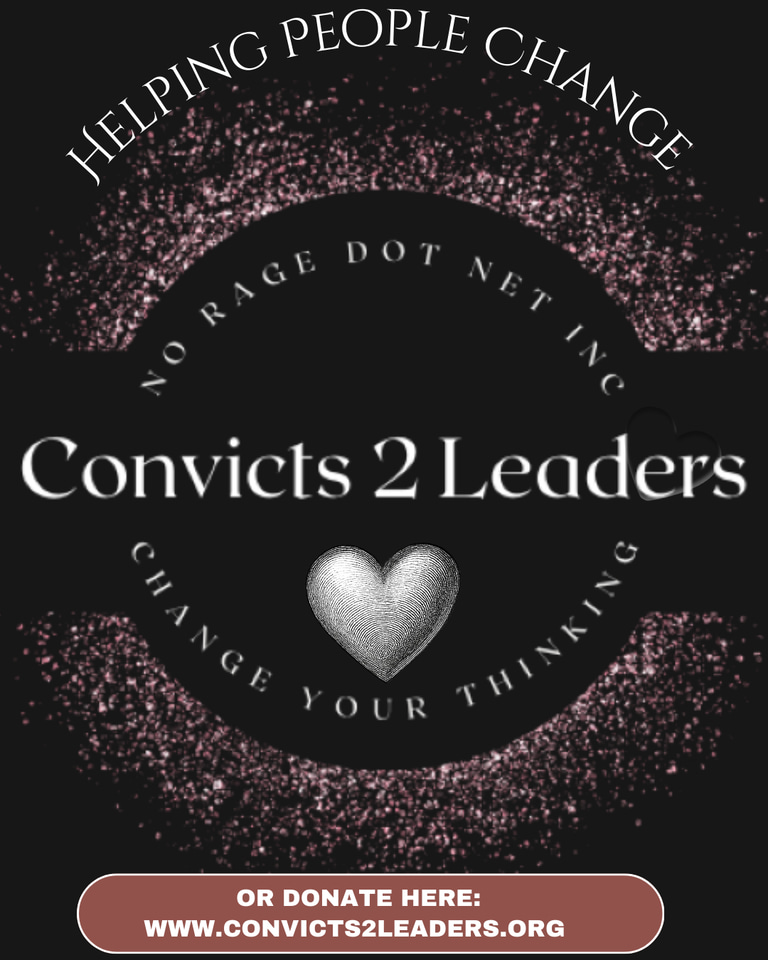NO RAGE DOT NET INC
Breaking the Cycle of Crime: A Holistic Approach
We are working to reduce recidivism.
Hollister George III, CATC II, CAMS I, CDVS I
3/31/20242 min read


Breaking the Cycle of Crime: A Holistic Approach
Crime is a complex issue that affects individuals, families, and communities. In order to effectively address this problem, it is crucial to adopt a holistic approach that focuses on cognitive restructuring, strengthening employability skills, and mindfulness.
Cognitive Restructuring: Changing the Mindset
Cognitive restructuring is a psychological technique that aims to change the way individuals think and perceive the world around them. In the context of crime prevention, it involves challenging and replacing negative thought patterns and beliefs that may contribute to criminal behavior.
By helping individuals develop a more positive and constructive mindset, cognitive restructuring can break the cycle of crime. This process often involves therapy sessions, counseling, and cognitive-behavioral techniques. It is essential to address the underlying issues that may lead to criminal behavior, such as low self-esteem, lack of impulse control, or unresolved trauma.
Strengthening Employability Skills: Opening Doors to a Better Future
A key factor contributing to criminal behavior is a lack of employment opportunities. Many individuals who engage in criminal activities do so out of desperation and a lack of viable alternatives. By focusing on strengthening employability skills, we can provide individuals with the tools they need to secure stable and fulfilling employment.
This can be achieved through vocational training programs, job placement services, and skills development initiatives. By equipping individuals with the necessary skills and knowledge, we empower them to break free from the cycle of crime and build a brighter future for themselves and their communities.
Mindfulness: Cultivating Self-Awareness and Emotional Regulation
Mindfulness is a practice that involves being fully present in the moment and non-judgmentally aware of one's thoughts, feelings, and sensations. In the context of crime prevention, mindfulness can play a crucial role in helping individuals develop self-awareness, emotional regulation, and impulse control.
By incorporating mindfulness techniques into rehabilitation programs and community initiatives, we can provide individuals with the tools they need to make better choices and avoid engaging in criminal behavior. Mindfulness practices such as meditation, deep breathing exercises, and mindful movement can help individuals develop resilience, reduce stress, and improve their overall well-being.
In conclusion, breaking the cycle of crime requires a holistic approach that addresses the underlying factors contributing to criminal behavior. By implementing cognitive restructuring techniques, strengthening employability skills, and promoting mindfulness, we can empower individuals to make positive changes in their lives and create safer and more prosperous communities.
